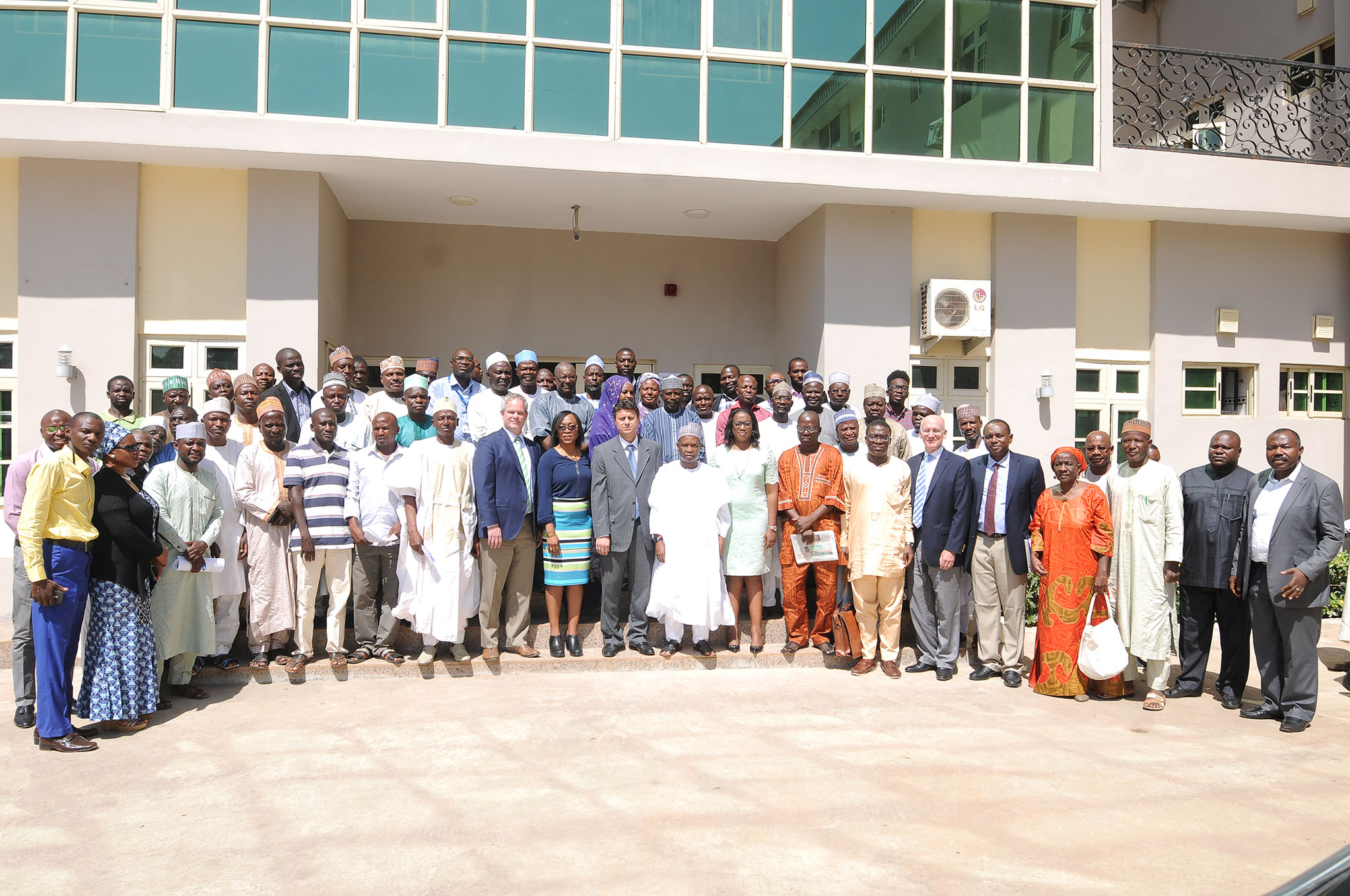In Kaduna State, Nigeria, as in many parts of the developing world, post-harvest losses due to high levels of mycotoxins, such as aflatoxin, and other contaminants have plagued staple crops such as maize and soybean, making it much harder for small-holder farmers to earn a decent income. These mycotoxins also threaten the health and lives of humans and animals. These contaminants lead to cancer and fatal kidney and liver failure. In children, aflatoxin poisoning causes stunting, immune suppression and even death.
USAID’s Feed-the-Future has joined forces with Nestlé to reduce the deadly threat of these dangerous crop contaminants and improve nutrition in Nigeria. For the past three years, Nestlé has been working with Nigerian farmers to improve their farming practices, the safety and quality of their crops, and thus their health and incomes. This new public-private partnership managed by Volunteers for Economic Growth Alliance (VEGA) and implemented by VEGA member Cultivating New Frontiers in Agriculture (CNFA) is expected to significantly expand upon these efforts to generate shared value.
At the program launch event in Kaduna State on October 25, Michael Deal, president and CEO of VEGA joined local partners, trainers and partners in celebrating what he called “a model multi-stakeholder collaboration to leverage highly skilled volunteers to generate more prosperity and shared value for all partners.”
Over the next three years, Feed the Future Nigeria and Nestlé Maize Quality Improvement Partnership will leverage the expertise of volunteers to train farmers, workers and small agricultural businesses in Kaduna State to reduce crop contaminants in order to sustainably increase the safety and quality of maize and soybeans and improve the health, nutrition and livelihoods in this community.
“This public-private partnership supported by Feed the Future will help lift farmers out of poverty by sharing best practices in agriculture activities and focusing on value chains,” stated USAID Nigeria Mission Director Stephen M. Haykin. “Investments in this program from Nestlé and through the in-kind contributions of volunteers really stretch U.S. taxpayer dollars and increase the return on investment.”
Through the VEGA and CNFA, a team of experts—including highly skilled volunteers—will build the capacity of local associations and train 150 local youth volunteers to train more than 20,000 smallholder farmers—including 40 percent women—increasing the sales of better quality maize and soybean by at least 17,000 metric tons annually. More than 200 for-profit private enterprises, such as farm service retailers, will also be trained and supported in improving their technologies and management practices. The partnership aims to empower participants throughout the supply chain to create a culture of transparency and traceability, leading to higher quality and safer crops that can be brought to market. The resulting increased grain and maize sales will boost incomes and help farmers and small business operators improve their livelihoods.
Mauricio Alarcon, CEO and managing director of Nestlé Nigeria said, “In line with our commitment to creating shared value, Nestlé is happy to work together with CNFA, USAID and VEGA to achieve our mutual objectives of helping to build thriving, resilient communities by improving the livelihoods of individuals and families with whom Nestlé lives and works.”
Mr. Alarcon added, “We are confident that this program will help to enhance quality of life and contribute to a healthier future.”
This article originally ran on Shared Value Initiative’s website


